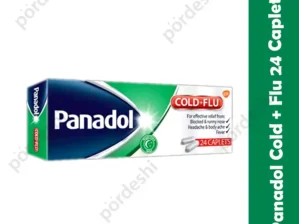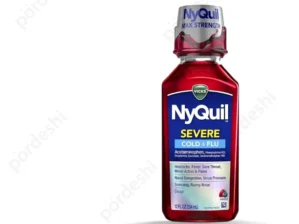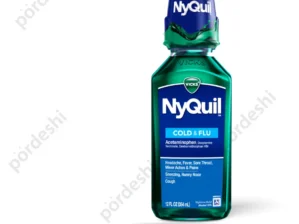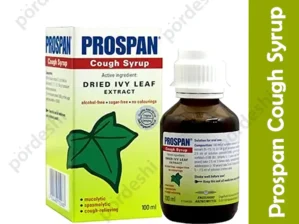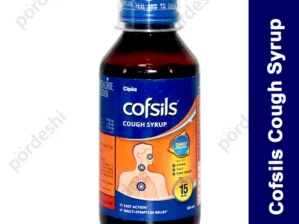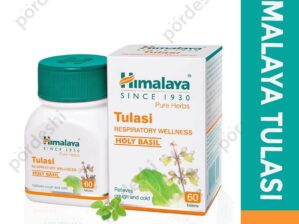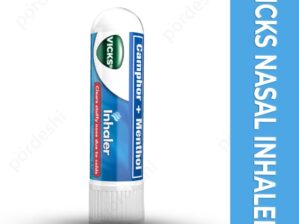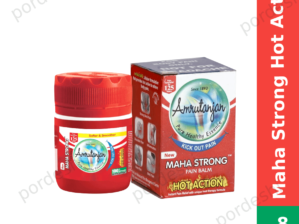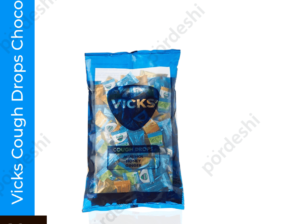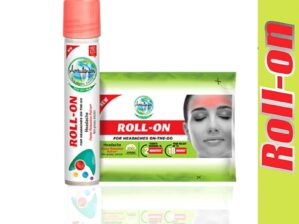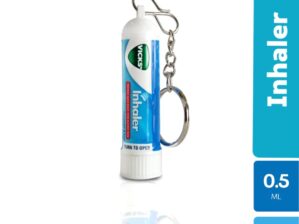Showing 1–12 of 21 results
Vicks NyQuil Severe Cold & Flu Relief Liquid 236 ml
Original price was: 2,600.00৳.2,499.00৳Current price is: 2,499.00৳.Vicks NyQuil Cold & Flu Nighttime Relief Liquid
Original price was: 3,000.00৳.2,499.00৳Current price is: 2,499.00৳.Prospan Cough Syrup
Original price was: 1,600.00৳.1,588.00৳Current price is: 1,588.00৳.Amrutanjan Maha Strong Hot Action
Original price was: 160.00৳.119.00৳Current price is: 119.00৳.Vicks Cough Drops Chocolate
Original price was: 560.00৳.358.00৳Current price is: 358.00৳.Amrutanjan Roll on for Headache 5 ml
Original price was: 320.00৳.179.00৳Current price is: 179.00৳.Vicks Inhaler Keychain 0.5ml
Original price was: 110.00৳.99.00৳Current price is: 99.00৳.The Ultimate Guide to Cold & Cough Remedies: Natural Solutions and More
Introduction
Cold and cough are common ailments that affect millions of people worldwide, causing discomfort and sometimes even disrupting daily activities. While there is no cure for the common cold, there are various remedies and treatments available to alleviate symptoms and speed up recovery. This comprehensive guide is tailored for natural remedy enthusiasts and aims to provide valuable insights into cold and cough remedies, their benefits, potential side effects, and how to choose the best one for your needs.
What is a Cold?
A cold is a viral infection that primarily affects the upper respiratory tract, including the nose and throat. Symptoms often include a sore throat, stuffy or runny nose, sneezing, and coughing. While colds are generally harmless, they can cause significant discomfort and disrupt daily routines.
Why Focus on Natural Remedies?
Natural remedies for cold and cough have been used for centuries and are often preferred for their minimal side effects and holistic approach to healing. These remedies focus on alleviating symptoms and boosting the body’s immune system to fight off infections naturally.
Who Benefits from Natural Remedies?
Natural remedies are especially beneficial for individuals who prefer to avoid synthetic medications and are seeking gentler, more holistic approaches to health. They are also suitable for those who may have allergies or sensitivities to certain pharmaceutical ingredients.
Natural Sources of Cold & Cough Remedies
Natural remedies for cold and cough can be derived from various sources, including:
- Herbs: Echinacea, elderberry, and ginger are known for their immune-boosting properties.
- Spices: Turmeric and cinnamon have anti-inflammatory and antioxidant benefits.
- Fruits: Citrus fruits like oranges and lemons are rich in vitamin C, which supports immune function.
- Honey: Known for its soothing properties, honey can help alleviate sore throat and cough.
Types of Cold & Cough Medicines
Nasal Decongestants
Nasal decongestants help unclog a stuffy nose by narrowing the blood vessels in the nasal passages. Common ingredients include pseudoephedrine and phenylephrine.
Cough Suppressants
Cough suppressants, or antitussives, work by reducing the urge to cough. Dextromethorphan is a widely used cough suppressant found in many over-the-counter medications.
Expectorants
Expectorants help loosen mucus in the lungs, making it easier to cough up. Guaifenesin is a common ingredient in expectorant medications.
Antihistamines
Antihistamines are primarily used to treat allergic reactions but can also help alleviate runny noses and sneezing. Common antihistamines include diphenhydramine and cetirizine.
Pain Relievers
Pain relievers, such as acetaminophen and ibuprofen, can help ease fever, headaches, and minor aches and pains associated with colds.
Benefits of Using Natural Remedies
- Fewer Side Effects: Natural remedies are less likely to cause adverse reactions compared to synthetic medications.
- Holistic Healing: They often address multiple symptoms simultaneously and support overall health.
- Sustainability: Many natural remedies are derived from renewable resources, making them environmentally friendly.
Risks and Side Effects
While natural remedies are generally safe, it’s essential to be aware of potential risks:
- Allergic Reactions: Some individuals may be allergic to certain herbs or natural ingredients.
- Interactions with Medications: Natural remedies can interact with prescription medications, so it’s crucial to consult with a healthcare provider.
- Dosage Concerns: Overuse of natural remedies can lead to adverse effects, just like synthetic medications.
How to Choose the Right Cold & Cough Remedy
- Identify Your Symptoms: Determine whether you need a decongestant, cough suppressant, expectorant, or a combination of these.
- Consider Your Preferences: Decide if you prefer natural remedies or are open to synthetic medications.
- Consult a Healthcare Provider: Always consult with a healthcare professional to ensure the remedy is safe for you, especially if you have underlying health conditions or are taking other medications.
How We Chose the Best Remedies
We evaluated various cold and cough remedies based on the following criteria:
- Effectiveness: How well the remedy alleviates symptoms.
- Safety: Potential side effects and interactions with other medications.
- User Reviews: Feedback from individuals who have used the remedy.
- Ingredients: Quality and naturalness of ingredients.
Ingredients: What to Pay Attention To
When choosing a cold and cough remedy, pay attention to the following ingredients:
- Active Ingredients: Ensure the active ingredients align with your symptoms.
- Inactive Ingredients: Look for added preservatives, dyes, or allergens.
- Natural Additives: Prefer remedies with natural additives like honey or essential oils.
Tips for Using Cold & Cough Remedies
- Read Labels Carefully: Follow the dosing instructions and be aware of any potential interactions with other medications you’re taking.
- Stay Hydrated: Drink plenty of fluids to help thin mucus and keep your throat moist.
- Get Plenty of Rest: Allow your body to heal by getting adequate sleep.
- Use a Humidifier: Adding moisture to the air can help soothe irritated nasal passages and throats.
Best Brands as:
International Picks
Vicks, Dabur, Prospan, panadol, Cipla,GSK.
Pordeshi picks for the best in Bangladesh
Vicks NyQuil Severe Cold & Flu Relief Liquid
Vicks NyQuil is a trusted brand offering a comprehensive solution for severe cold and flu symptoms. Its multi-symptom formula includes a pain reliever/fever reducer, cough suppressant, and antihistamine.
Panadol Cold + Flu
Panadol is a well-known brand in Bangladesh, offering effective relief from cold and flu symptoms, including fever, headache, and congestion.
Dabur Honitus Herbal Cough Remedy
Dabur Honitus is a popular herbal remedy in Bangladesh, combining honey and traditional herbs to provide natural cough relief.
Benadryl Cough Syrup
Benadryl is another trusted brand providing relief from cough and cold symptoms with its effective and fast-acting formula.
Cofsils Cough Syrup
Made in INDIA. It Works as an antihistamine to relieve allergies
Prospan Cough Syrup
Conclusion
It remedies can significantly alleviate symptoms and improve comfort during illness. Whether you prefer natural remedies or are open to synthetic options, it’s crucial to choose a solution that aligns with your symptoms and overall health needs. Always consult with a healthcare provider to ensure the remedy is safe for you.
Frequently Asked Questions
- Can I take cold and cough medicines together?
- Yes, but be cautious of overlapping active ingredients to avoid overdose.
- Are natural remedies effective for colds?
- Many natural remedies can be effective, especially when used at the onset of symptoms.
- Can children take cold and cough medicines?
- Consult a pediatrician before giving any medication to children, especially those under two years old.
- What is the best natural remedy for a sore throat?
- Honey and warm salt water gargles are effective natural remedies for sore throats.
- How long does a typical cold last?
- A common cold usually lasts 7-10 days.
- Can I prevent colds with natural remedies?
- While no remedy can guarantee prevention, maintaining a healthy immune system can reduce your risk.
- Are there any side effects of natural remedies?
- Natural remedies are generally safe but can cause allergic reactions in some individuals.
- Is it safe to use a humidifier for a cough?
- Yes, a humidifier can help keep your throat moist and reduce coughing.
- What foods should I avoid when I have a cold?
- Avoid dairy products if they increase mucus production and sugary foods that can weaken the immune system.
- Can exercise help with cold symptoms?
- Light exercise can boost your immune system, but avoid strenuous activities if you’re feeling weak.
- How much water should I drink when I have a cold?
- Aim to drink at least eight 8-ounce glasses of water daily to stay hydrated.
- Are there any over-the-counter natural remedies?
- Yes, many health stores offer over-the-counter natural cold and cough remedies.
- Can essential oils help with cold symptoms?
- Essential oils like eucalyptus and peppermint can help alleviate congestion and soothe coughs.
- Is it safe to use multiple cold remedies at once?
- Consult a healthcare provider before combining multiple remedies to ensure safety.
- Can probiotics help with cold prevention?
- Probiotics can support your immune system but are not a guarantee against colds.
- What is the best way to manage a persistent cough?
- Persistent coughs should be evaluated by a healthcare provider to rule out underlying conditions.
- Can honey be given to children for cough?
- Honey is safe for children over one year old and can be an effective cough remedy.
- How can I boost my immune system naturally?
- Eat a balanced diet, get regular exercise, and ensure adequate sleep to support immune function.
- Are there any herbal teas that help with cold symptoms?
- Herbal teas like chamomile, ginger, and peppermint can soothe cold symptoms and provide relief.
- What should I do if my cold symptoms worsen?
- Seek medical attention if your symptoms worsen or do not improve within a week.
By understanding the various cold and cough remedies available, you can make informed decisions that best suit your health needs and preferences. Whether you opt for natural solutions or conventional medications, the goal is to find relief and support your body’s healing process.



 Hair Care
Hair Care
 Vibrating Rings
Vibrating Rings

 Oral Care
Oral Care

